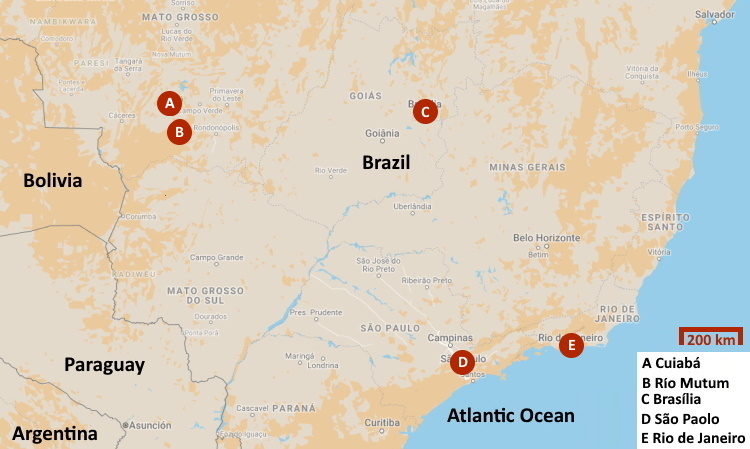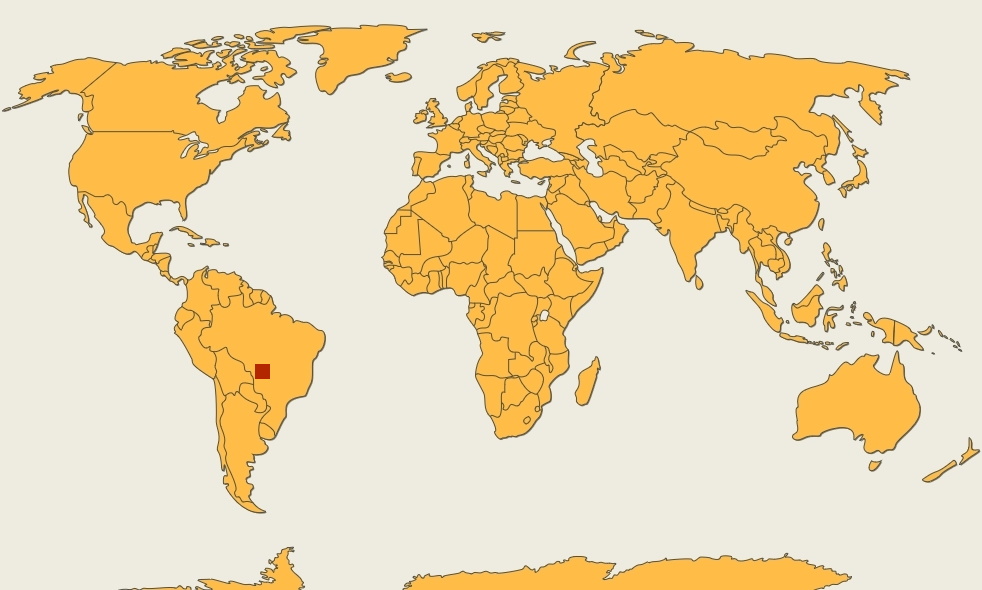The world's largest wetland
Brazil | Pantanal | Anno 2018


The heart of South America is dominated by a great geographic depression, an immense basin of approximately 150,000 km² – five times the size of Belgium. It is largely in Brazil, with extensions to Bolivia and Paraguay, and arose a very long time ago, even before the formation of the Andes.
Right through this basin, numerous rivers such as Río Cuiabá and Río Mutum carry rainwater from the highlands. Year after year they leave their sediment behind. This has resulted in a relatively flat area, with an immense river delta that barely slopes down to the sea – at most thirty to fifty centimetres per kilometre.
Once the rains pick up speed in November, those slowly meandering rivers can no longer handle the large amount of water. About 80% of the country will be submerged for four months, two to three meters deep.
Pântano or swamp the Portuguese settlers called this area. Today it is known as the Pantanal. It is the largest wetland in the world. The annual floods have made it one of the densest ecosystems in the world. The unparalleled fauna and flora is hardly inferior to that of the Amazon region.
But that biodiversity is more vulnerable than we think. As soon as the rising river water comes into contact with the bone-dry soil, the oxygen content drops sig-nificantly. Fish are the first victim of this. Huge fish kills can be the result, some-times tens of tons of fish at once. Bacteria that attack rotting plants also take a lot of oxygen from the water.
Fortunately, there are the apple snails. They have no problem with oxygen-poor water. That's because they have something unique about them – they have both a gill and a lung. If necessary, they raise their long snorkel above the water to suck in oxygen-rich air. It makes these molluscs a key species in the Pantanal. Besides bacteria, they are the only ones in this water that can recycle decaying plant remains into nutritious fertilizers for new plants.
Polluted water is the biggest threat to these apple snails. And that brings us to humans. 99% of the Pantanal is privately owned. Animal husbandry has always been important, soybean farming is on the rise, mining and deforestation are the order of the day. Glyphosate, pesticides and fertilizers increasingly threaten water quality.
Jaak Palmans
© 2022 | Version 2022-08-16 16:00



